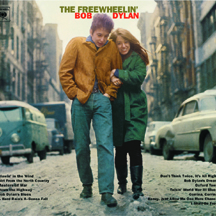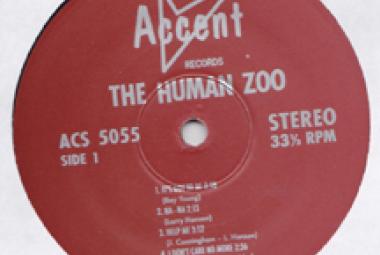“Ballad of Hollis Brown” is on Dylan’s third album, The Times They Are A-Changin’, and I imagine that this is the album that most people think is his most overtly “protest” album. I beg to differ; Dylan’s breakthrough second album, The Freewheelin’ Bob Dylan includes four songs that are much closer to being protest songs than any of the songs on Times: “Blowin’ in the Wind”, “Masters of War”, “Oxford Town”, and “A Hard Rain’s A-Gonna Fall".
In fact, I would go so far as to say that Bob Dylan is much less of a protest singer than he is generally perceived to be. I speak as someone who is as big a fan of the acoustic Dylan as of the electric Dylan, and I own dozens of songs from this time period that never made it onto any of Bob Dylan’s major-label albums – and there are hardly any protest songs among those recordings either.
Generally speaking, politicians (and even “the Establishment”) are rarely in Bob Dylan’s sights. As an example, “Oxford Town” was written in direct response to an invitation from Broadside magazine for folk singers to write a song about the black student, James Meredith who enrolled at the University of Mississippi on October 1, 1962. That’s about as close to a pure protest song as anything Dylan ever wrote. However, I imagine that most people living outside the state of Mississippi have no idea that “Ole Miss” is located in the city of Oxford, and Dylan never mentions the student or the university. In a 1963 interview with Studs Terkel, Bob Dylan talked about “Oxford Town”: “It deals with the Meredith case, but then again it doesn’t. . . . I wrote that when it happened, and I could have written that yesterday. It’s still the same. ‘Why doesn’t somebody investigate soon’ – that’s a verse in the song.”
About “Blowin’ in the Wind”, Bob Dylan’s most famous song along these lines, I can hardly improve on what Wikipedia has to say: “Although it has been described as a protest song, it poses a series of rhetorical questions about peace, war and freedom. The refrain ‘The answer, my friend, is blowin’ in the wind’ has been described as ‘impenetrably ambiguous: either the answer is so obvious it is right in your face, or the answer is as intangible as the wind’”.
As to the other protest songs on Freewheelin’, Dylan’s angriest song by far, “Masters of War” is directed not at the politicians who get us into wars, but at the war-machine corporations who profit from them. Dylan states in the liner notes on the album: “I’ve never written anything like that before. I don’t sing songs which hope people will die, but I couldn’t help it with this one. The song is a sort of striking out . . . a feeling of what can you do?”. More than any other song that I can think of, in later years Bob Dylan dramatically altered the arrangement of “Masters of War” in concert performances to the point that it is almost unrecognizable from the original version.
In a 2001 interview published in USA Today, Bob Dylan linked this song to the famous farewell address by President Dwight D. Eisenhower on January 17, 1961: “‘Masters of War’ . . . is supposed to be a pacifistic song against war. It’s not an anti-war song. It’s speaking against what Eisenhower was calling a military-industrial complex as he was making his exit from the presidency. That spirit was in the air, and I picked it up.”
The most complex and imaginative of these songs, “A Hard Rain’s A-Gonna Fall” is sometimes mistakenly linked with the Cuban Missile Crisis; but actually, Bob Dylan had already written the song before the crisis happened. In the liner notes on the album, Dylan famously spoke of this song: “Every line in it is actually the start of a whole new song. But when I wrote it, I thought I wouldn’t have enough time alive to write all those songs so I put all I could into this one.” Author Ian MacDonald described “A Hard Rain” as one of the most idiosyncratic protest songs ever written.
In the Studs Terkel interview mentioned above, Dylan uncharacteristically laid out what he meant by some of the lyrics in “Hard Rain”: “No, it’s not atomic rain, it’s just a hard rain. It isn’t the fallout rain. I mean some sort of end that’s just gotta happen. . . . In the last verse, when I say, ‘the pellets of poison are flooding the waters’, that means all the lies that people get told on their radios and in their newspapers.”
(May 2013)















